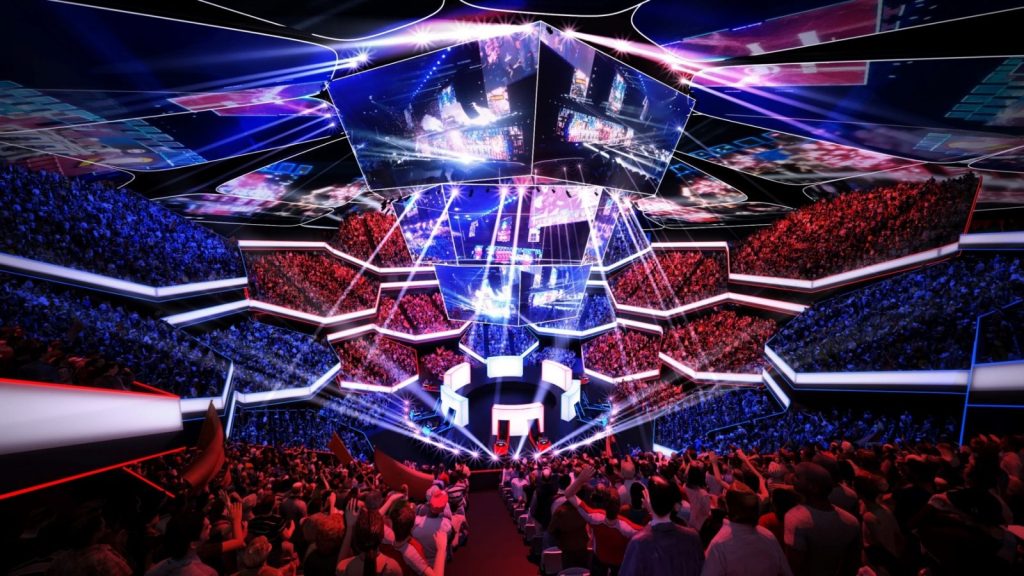Join the gaming revolution with MayaGame! Explore the dynamic world of eSports, where skill meets strategy and community thrives. Discover how competitive gaming is reshaping entertainment and creating opportunities for players and fans alike
Unlocking the Future of eSports: How MayaGame is Shaping Competitive Gaming and Community Engagement

eSports, a thrilling phenomenon that’s taken the globe by storm, has captivated millions of fans and players alike. With soaring viewership numbers and an ever-expanding roster of popular players and lucrative sponsorship deals, eSports is quickly catching up to traditional sports. Today, we witness the rise of eSports teams, franchises, and tournaments—everything you’d expect from a full-fledged sports revolution and more!
In this blog, we’ll dive into the electrifying world of competitive gaming and uncover the elements that make it such a compelling global attraction. What exactly is eSports, and how did it come to be? From its historical roots to the biggest games, tournaments, and organizations, we’ll explore the various facets of eSports.
eSports has even made a significant impact on traditional sports, allowing for exciting comparisons and discussions about the future of all competitive activities. We’ll tackle questions like: What is eSports? How does it stack up against traditional sports? What’s the deal with esports betting? What’s the emergence of collegiate esports all about? And how can aspiring players step into this dynamic field? Let’s jump in and unravel the captivating world of eSports!
The Journey of Competitive Gaming
The history of competitive gaming is rich and fascinating, stretching back to the early days of video games. Initially, gaming competitions were small-scale local events, but with the advent of the internet, they quickly transformed into global spectacles. The first known eSports tournament took place in 1972 at Stanford University, featuring the iconic game Spacewar.
Fast forward to 1974, when Sega organized a nationwide arcade video game tournament to promote gaming in Japan. The 1990s became a defining decade for video gaming, marked by events like the Nintendo World Championships and the birth of online gaming.
The 2000s saw a boom in the eSports industry, particularly in South Korea, where many turned to video games after losing jobs during the 1997 financial crisis. Countries began to recognize eSports’ immense potential, leading to a proliferation of tournaments around the globe.
Since then, the industry has experienced exponential growth, driven by technological advancements, streaming platforms, and widespread accessibility.
What Exactly is eSports?
eSports, short for electronic sports, refers to competitive video gaming where professional players or teams face off in various video games. This organized play involves structured tournaments and leagues, often broadcast to a global audience.
For a game to be classified as an eSport, it needs to have human interaction, competition between players, and an engaging spectator element. Some of the biggest eSports titles include League of Legends, Fortnite, Dota 2, Counter-Strike, and Apex Legends.
Much like traditional athletes, eSports players display exceptional skills, strategic thinking, and lightning-fast reflexes. The competitive nature of eSports, combined with its immersive gameplay and vibrant community, has garnered immense popularity among fans.
The Explosive Growth of eSports
The popularity of eSports has skyrocketed in recent years. According to Newzoo, a leading eSports analytics firm, the global eSports audience reached an astonishing 474 million viewers in 2021. Additionally, Repeat reported that League of Legends had the highest eSports viewership in 2019, with over 1.1 billion hours watched.
The industry’s revenue is projected to grow at an annual rate of 8.31%, reaching $2,235 million by 2027, according to Statista. eSports events now fill arenas, often drawing more viewers than traditional sports, thanks to dedicated fans, corporate sponsorships, media rights deals, and lucrative advertising opportunities.
Who Are the Fans of eSports?
eSports boasts a diverse and passionate fan base that transcends age, gender, and geography. The community is vibrant, with fans engaging on forums, live streaming platforms, social media, and dedicated eSports websites. Twitch, owned by Amazon, stands out as a leading streaming platform, hosting over 7.2 million channels each month and averaging around 2.5 million concurrent viewers.
Both online and offline eSports events foster a sense of camaraderie among fans, many of whom are also amateur players seeking tips and tricks from professionals.
The Backbone: Professional eSports Players
Professional eSports players are the heart and soul of the industry. These individuals dedicate countless hours to mastering their craft, honing their skills, and competing at the highest levels. Many start as gaming enthusiasts, gradually building a fanbase that supports them throughout their careers.
Typically, players join or form eSports teams, collaborating and strategizing to achieve success. While millions play video games worldwide, only a select few can or want to become professional eSports players. The path to becoming an eSports player is much like any other sport: it requires countless hours of practice and a dash of talent.
Noteworthy eSports Games
Several titles have propelled the growth and popularity of eSports. Key games include League of Legends, Dota 2, Counter-Strike: Global Offensive, Overwatch, and Fortnite, but classics like Call of Duty, Apex Legends, and even early fighting games like Street Fighter II or Mortal Kombat have played a role as well.
These games feature unique gameplay mechanics, diverse strategies, and fierce competition, attracting millions of players and viewers globally. Each game has its dedicated fan base and professional leagues, further fueling the eSports ecosystem.
Highlighting Major Tournaments
The eSports calendar is packed with thrilling tournaments, drawing massive audiences and offering substantial prize pools. Events like The International (Dota 2), the League of Legends World Championship, Counter-Strike: Global Offensive Major Championships, and the Fortnite World Cup stand out as some of the most prestigious, showcasing top-tier skill and an electrifying atmosphere.
Leading eSports Organizations
The eSports landscape features numerous organizations providing infrastructure and resources for professional players and teams. Identifying the best eSports team can be tricky, but some prominent names include Team Liquid, Fnatic, Cloud9, G2 Esports, FaZe Clan, T1, and Evil Geniuses.
These organizations not only compete in various games but also extend their reach into content creation, merchandise, and sponsorships, similar to traditional sports teams. Major tournament organizers like ESL, Riot Games, Tencent, and Garena also play crucial roles in the eSports industry.
Franchising in eSports
Many professional eSports teams participate in franchised leagues centered around specific games. This franchising model borrows from traditional sports leagues, offering players guaranteed salaries and stability while ensuring a spot in organized events.
The South Korean Impact
South Korea is often hailed as the birthplace of modern eSports, having made a monumental impact on the industry, particularly in the 2000s. The Korean government was the first to recognize eSports’ potential, establishing the Korean Esport Association (KeSPA) as a regulatory body for the industry.
With a robust infrastructure and a passionate fan base, South Korea has produced legendary players and made eSports a significant part of mainstream culture. Games like StarCraft, Dota 2, and League of Legends have thrived, turning players into celebrities and paving the way for eSports’ global rise.
eSports vs. Traditional Sports
eSports presents a legitimate challenge to traditional sports, altering perceptions of athleticism and competition. While traditional sports focus on physical prowess, eSports emphasizes mental agility, quick reflexes, and strategic decision-making.
Though traditional sports evolve slowly, eSports are dynamic, continually introducing new features, updates, and games. The growing viewership and investments have caught the attention of traditional sports organizations, prompting them to establish eSports divisions, such as the NFL, NBA, and English Premier League, creating a landscape where both realms coexist and learn from one another.
Even with eSports events not requiring physical venues, packed arenas during tournaments are becoming the norm, highlighting the industry’s popularity.
The Rise of eSports Betting
eSports betting mirrors traditional sports, allowing fans to wager on eSports events and outcomes at various platforms. The rise of eSports betting has brought various wagering options, from match winners to in-game events.
With real-time streaming and engagement, live betting during eSports matches has become particularly popular. Bettors can place wagers on elements like the first kill in Counter-Strike or which player will have the most kills.
Collegiate eSports: A Growing Scene
Collegiate eSports is blossoming, paralleling traditional sports. Many universities now offer eSports programs, scholarships, and competitive teams, recognizing the popularity and impact of gaming on students.
The National Association of Collegiate eSports (NACE) brings schools together to advance varsity collegiate eSports, allowing aspiring players to develop their skills, compete against others, and gain recognition in the eSports community. This emerging scene serves as a stepping stone for talented players transitioning into the professional realm, akin to college sports leading to professional leagues.
Understanding the Difference: eSports vs. Online Gaming
While eSports and online gaming are sometimes used interchangeably, they differ significantly. Online gaming refers to casual or recreational play over the internet, often among friends, whereas eSports involves professional players competing in organized tournaments for monetary rewards. eSports emphasizes teamwork, skill, and competition, while online gaming can be solitary or collaborative.
Recently, crypto gaming has also begun to intersect with eSports, particularly in areas like eSports betting.
Getting Started in eSports
If you’re eager to embark on your eSports journey, dedication, practice, and a strategic approach are essential. Here’s how to get started:
- Choose a Game: Select a game you love and wish to excel at.
- Master the Game: Invest time in learning its mechanics and strategies.
- Join the Community: Engage with fellow players, join forums, and participate in local tournaments.
- Form a Team: Collaborate with like-minded players to practice and compete together.
- Follow the Scene: Stay updated with industry news, tournaments, and trends to stay ahead.
Conclusion: The Future of eSports
The world of eSports is captivating, constantly evolving, and brimming with opportunities. With millions of fans, significant investments, and increasing recognition, eSports is here to stay.
Whether you’re a casual player or an aspiring pro, the eSports universe offers a wealth of experiences and prospects. As we navigate this thrilling frontier, one thing is clear: eSports will continue to push boundaries and redefine competitive gaming for years to come.















